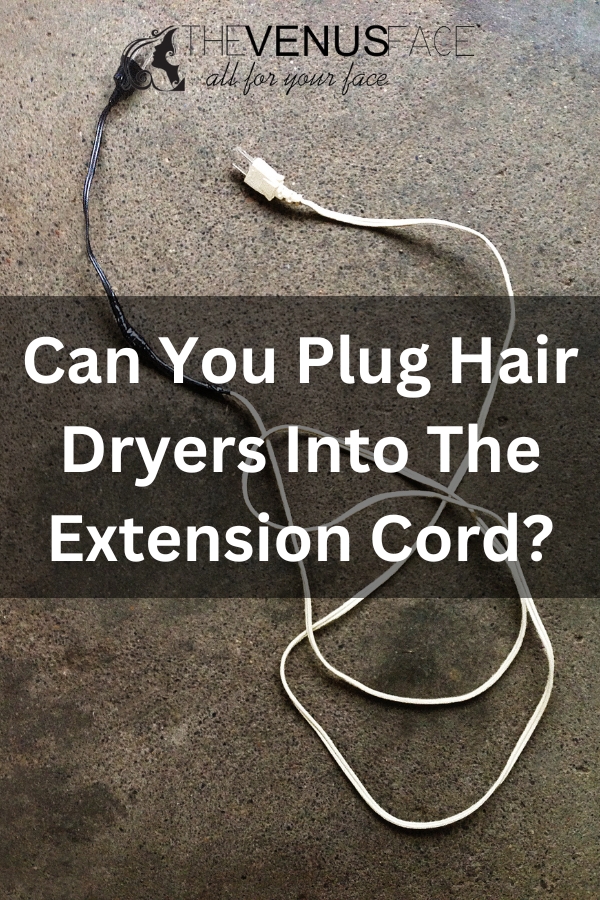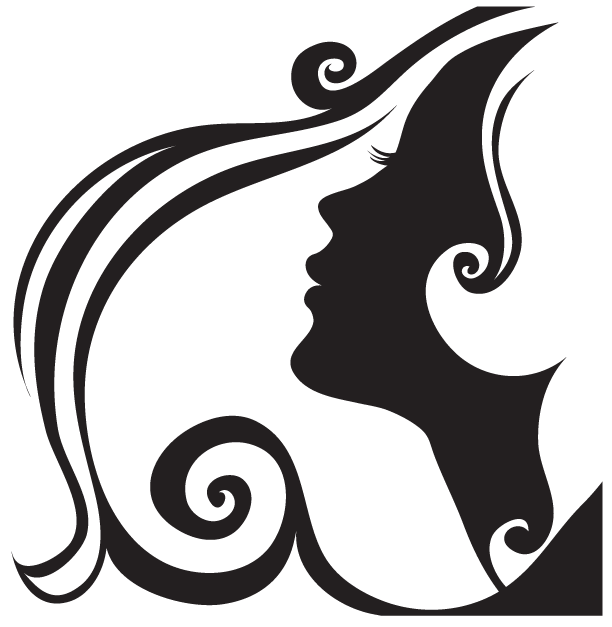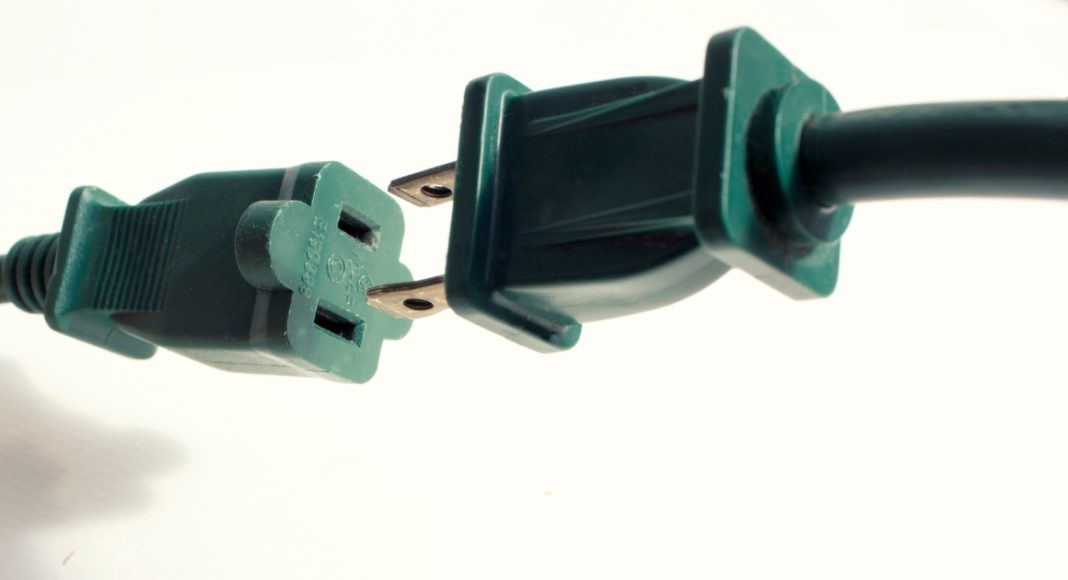It’s a groggy Monday morning, and you’re standing in front of the bathroom mirror, staring at your hair, which seems to have a life of its own – resembling a particularly enthusiastic tumbleweed. Fear not, for salvation comes in the form of your trusty hair dryer, a gizmo that turns bed-head into a stylish coif in a matter of minutes. But hold on a sec, eagle-eyed reader! There’s a twist in this follicular tale. What if your bathroom outlet is as distant as a galaxy far, far away? That’s where our hero, the extension cord, enters the scene with a suave swagger. But can this dashing extension cord handle the power-hungry mane tamer that is the hair dryer? Buckle up, because we’re about to embark on a follicle-fueled adventure that delves into the electrifying question: Can you plug a hair dryer into an extension cord? Now we are going to untangle the mysteries of power, currents, and those oh-so-fashionable follicles – all in one shockingly good story!

Can you plug hair dryers into the extension cord?
It is generally discouraged to plug a hair dryer into an extension cord. Hair dryers, being heat-generating devices, tend to draw a significant amount of electricity from the power source. Most manufacturers and safety organizations, such as the National Fire Protection Association (NFPA), advise against using an extension cord with a hair dryer due to the potential risks involved.
Using a hair dryer with a thin and long extension cord can lead to severe damage to the cord, including melting or even starting a fire. However, if you have no other option and the outlet in your home is not suitable for your hair dryer, you might consider using an alternative cord. In such cases, it is crucial to ensure that the extension cord you use is capable of handling the load delivered by the hair dryer.
For powerful hair dryers, it is recommended to use heavy-duty extension cords with a gauge of 12 AWG (American Wire Gauge). These cords are designed to handle higher power loads and are more reliable than thinner cords, such as 14 AWG cords.
While it is generally best to avoid using an extension cord with a hair dryer, if you must use one, it is essential to choose a high-quality extension cord that matches the power rating of your hair dryer. Additionally, regular inspection of the cord for any signs of damage is necessary to ensure safety.
More: Can the hair dryers run on inverters?
Best extension cords for hair dryer
No products found.
More: Can you leave a hair dryer plugged in?
How to choose extension cords for hair dryer
When choosing extension cords for hair dryers, it’s important to consider safety and compatibility. Here are some factors to keep in mind:
Wattage and amperage rating
Hair dryers typically have high wattage requirements, so ensure that the extension cord you choose can handle the load. Look for cords with a rating of at least 15 amps and 1875 watts, as these are common power requirements for hair dryers.
Length
Determine the distance between your hair dryer and the power outlet. Choose an extension cord that is long enough to reach the outlet without excessive tension or stretching. Longer cords can potentially lead to voltage drop and decreased efficiency, so opt for the shortest length that meets your needs.
Gauge (wire thickness)
The gauge of an extension cord indicates the thickness of its wires. Thicker wires can carry higher loads without overheating. For hair dryers, it is recommended to use cords with 14-gauge or 12-gauge wires. The lower the gauge number, the thicker the wire.
Type of cord
Look for extension cords specifically designed for heavy-duty use, such as those labeled as “outdoor” or “all-weather.” These cords are typically sturdier and more durable, built to withstand wear and tear.
Safety features
Opt for extension cords that have safety features like grounded plugs and built-in circuit breakers. Grounded plugs have three prongs (two flat and one round) to provide an additional layer of protection against electrical shocks.
Certification and compliance
Check for certification marks such as UL (Underwriters Laboratories) or ETL (Intertek) to ensure that the extension cord meets recognized safety standards. These marks indicate that the cord has undergone testing for safety and reliability.
Avoid daisy-chaining
It is generally not recommended to daisy-chain extension cords, which means connecting multiple cords together. This practice can increase the risk of overheating and electrical hazards. Instead, use a single, appropriately sized extension cord that reaches the power outlet directly.
More: How Long Can a Hair Dryer Run?
Can I plug a blow dryer into a power strip?
Using a blow dryer with a power strip can be risky and is generally not recommended. Here’s what you need to know:
Overloading the power strip
Blow dryers are high-powered devices that draw a significant amount of electricity. When you plug a blow dryer into a power strip along with other devices, it can easily overload the strip, especially if the strip is already powering multiple devices. This can lead to overheating, tripped circuits, or even electrical fires.
Surge protection
Power strips may or may not have surge protection built-in. Surge protectors are designed to handle power surges and protect sensitive electronic devices from damage. However, not all power strips provide surge protection. If your power strip does not have surge protection and a power surge occurs while using a blow dryer, it could damage both the blow dryer and other connected devices.
Dedicated circuit
It’s generally safer to plug high-powered appliances like blow dryers directly into a dedicated outlet. Dedicated circuits are designed to handle the load of specific appliances, reducing the risk of overloading the circuit and causing electrical issues. If you frequently use a blow dryer, consider having a dedicated circuit installed by a licensed electrician.
In summary, it is not recommended to plug a blow dryer into a power strip due to the risk of overloading the strip and potential damage to the devices or electrical hazards. It’s safer to use a dedicated outlet for high-powered appliances like blow dryers and consider surge protectors or dedicated circuits for added protection.
More: Will My Hair Dryer Work in the USA?
Best power strip for hair dryer
Power strips are a common solution for expanding the number of available outlets, but using them with high-power appliances like hair dryers can be risky and may lead to potential hazards. However, manufacturers have recognized this concern and have introduced specialized power strips specifically designed to handle the unique demands of hair dryers. These hair dryer power strips offer enhanced safety features and robust capabilities, providing users with a reliable and efficient way to power their hair styling tools.
No products found.
More: Can You Buy Battery-Operated Hair Dryers?
Can a hair dryer be plugged into a surge protector?
Yes, a hair dryer can be plugged into a surge protector. A surge protector is designed to protect electronic devices from voltage spikes and surges that can damage them. While power strips and surge protectors are often confused, they are not the same thing. A power strip is simply an extension cord with multiple outlets, whereas a surge protector contains additional components to suppress and redirect power surges.
When using a surge protector with a hair dryer, it is important to consider the power requirements of the hair dryer and the capacity of the surge protector. Hair dryers are high-power appliances, and they draw a significant amount of electricity. Therefore, it is crucial to ensure that the surge protector you use can handle the power demands of the hair dryer. Most power strips and surge protectors have a maximum wattage or amperage rating, which indicates the amount of power they can safely handle. It is essential to check the label or specifications of the surge protector to ensure it can accommodate the power requirements of your hair dryer.
Best surge protector for hair dryer
No products found.
Conclusion
Can you plug a hair dryer into an extension cord? It is generally safe to plug a hair dryer into an extension cord, but several important considerations must be taken into account to ensure the safety and proper functioning of both the hair dryer and the extension cord. Hair dryers typically draw a significant amount of power, and using an extension cord that is not designed to handle the electrical load can result in overheating voltage drops or even electrical fires.
More: Do Hair Dryers Have Teflon? List of PTFE-Free Blow Dryers


